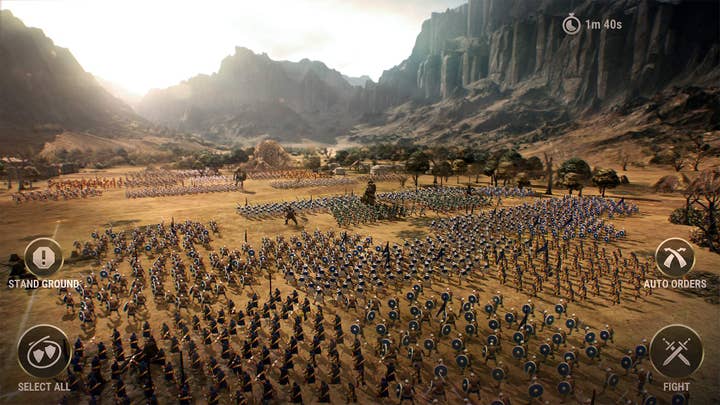“Releasing your mobile game in China is an absolute necessity”
SuperData CEO Joost van Dreunen discusses the opportunities and challenges of heading East
This article was first printed in the GamesIndustry.biz Mobile Newsletter. To receive these special emails, sign up here.
To Western mobile developers, the Chinese market may seem as daunting as it is distant.
Every aspect of the landscape is different to anything seen in regions closer to home: the publishers, the distribution channels, player tastes, player behaviours, spending habits and, of course, the language. Even simple things like use of colour will be unfamiliar; red, traditionally used to depict danger or damage in games, is actually associated with good fortune and joy in China.
However, a report this week from investment firm Atomico notes the market value for games in China is $24.4bn, accounting for 25% of the global market. It also observers there are 600m gamers in China - twice the population of the US - and with the well-documented dominance of smartphones in the region, it appears to be a prime opportunity for mobile developers.
A mere 'opportunity'? No, says Joost van Dreunen, co-founder and CEO of SuperData Research - it's much more than that.

"The Chinese mobile games market is the largest market in the world," he tells GamesIndustry.biz. "Releasing your game in China is not just an advantage, it is an absolute necessity."
Of course, it's no easy task. The market is incredibly challenging for outside companies to enter - in no small part to new regulations introduced last summer designed to root out certain kinds of content, not just in games but in any kind of foreign media. Story-based games are under particular scrutiny as they are more likely to contain political and military topics, or other material the Chinese government disapproves of.
Even the world-conquering Pokémon Go was denied a Chinese launch, when the State Administration of Press, Publication, Radio, Film and Television deemed to investigate the game and whether it endangered people's lives and property, or even national security. Fortunately, Superdata reported back in December that this approval process sped up significantly towards the end of the year.

A new law also came into effect last month that demands developers reveal the percentage rates for items yielded by any random system. Given how many free-to-play titles - a business model that dominates the Chinese market - rely on such mechanics to monetise their players, this requires careful consideration when moving for a release in the region.
Another challenge is the number of different platforms available. Fortunately, Android and iOS both have a healthy presence in China, although back in December 2016, Superdata revealed Android players in China were worth eight times more (in terms of revenue generated) than those on iOS. That said, this week's Atomico report notes that $5.5bn was still spent on iOS games in 2016, showing significant growth over the past four years.
"There are certainly several obvious challenges to releasing your game in China," van Dreunen observes. "Getting approval, the relatively high risk of being cloned, and the fact that this is now a deep red ocean.
"But the biggest challenge in releasing your game in China is being unable to meet demand. I've seen medium-sized developers struggle to keep up and churn out enough content at regular intervals to keep players engaged. You have to understand that Chinese gamers are ravenous and demand a lot of content to satisfy their appetite. So while it may initially seem like a great decision to release in China, studios run the risk of getting crushed under the necessary workload. Many developers are not set up to release content at that scale."

To that end, he urges developers to find a publisher in the region. There are plenty available, and in recent weeks we've seen several Western studios choose exactly this strategy to tap into China's lucrative market. Zynga partnered with Chinese publisher NetEase to bring its real-time strategy title Dawn of War to the region, as did Peter Molyneux and the 22cans team for their survival adventure The Trail.
Even the mighty Ubisoft secured a deal with Tencent, who will publish a new Might & Magic Heroes game for mobile, developed by local studio Playcrab. With so many partnerships already established with Western games firms, any studios looking East would be ill-advised to attempt to enter the market themselves.
"From a practical standpoint, it doesn't make sense to go it alone," he warns. "Partnering helps to lower the barriers to entry significantly and in some cases is mandatory. It's a bit of an upside-down universe where you have one of the top publishers like Activision forced to work with a direct competitor like Tencent."
The revenues available and the larger audience, as van Dreunen says, makes it a "necessity" for developers to be investigating routes into China - although the SuperData CEO is quick to remind that efforts should be spread across other territories as well.
"Don't get stuck on only China," he warns. "If you're a mobile game company you should also consider the Nordics, for example, which has a more affluent consumer base."
